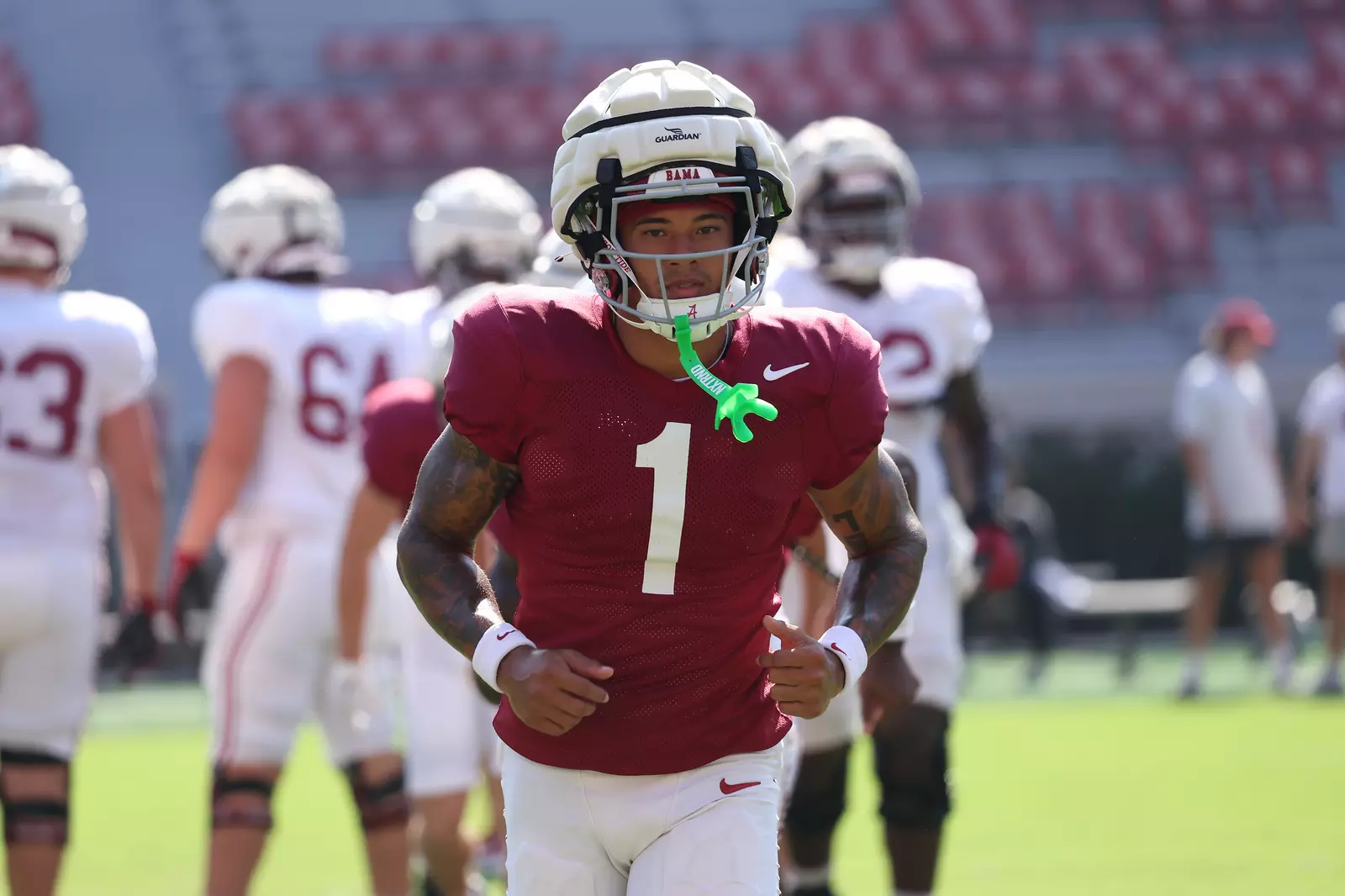The recruitment of top defensive end Titan Davis was one of the most closely followed battles in college football’s 2025 cycle, a showdown between two powerhouse programs—Alabama and Michigan. For months, analysts and fans debated where the five-star prospect would land, with many believing the Crimson Tide’s storied defensive lineage and championship pedigree would secure his commitment. Yet, when decision day arrived, Davis chose the Wolverines, leaving Alabama to ponder what went wrong in their pursuit of the elite pass rusher. The loss was a significant blow to Nick Saban’s recruiting machine, and the reasons behind it reveal much about the evolving landscape of college football, where tradition alone is no longer enough to sway the nation’s best talent.
One of the most critical factors in Davis’ decision was the personal connection he felt with Michigan’s coaching staff, particularly head coach Sherrone Moore and defensive coordinator Wink Martindale. From the beginning of his recruitment, Michigan made it clear that Davis wasn’t just another player on their board—he was their top priority. Moore, who had taken over for Jim Harbaugh after his departure to the NFL, emphasized building relationships, and that approach resonated with Davis and his family. Multiple reports suggested that Michigan’s staff spent more time developing a genuine bond with Davis, often communicating with him beyond just football, discussing life after the game and his long-term development as both a player and a person. In contrast, while Alabama’s staff was undoubtedly professional and persistent, there was a sense that their pitch leaned heavily on their established reputation rather than tailoring their approach to Davis as an individual.
Another key element was Michigan’s ability to sell Davis on an immediate impact role. The Wolverines had a clear need for a dominant edge rusher, and their defensive scheme under Martindale—an aggressive, NFL-style system—appealed to Davis’ desire to be turned loose as a playmaker. Michigan’s recent success in developing defensive linemen for the NFL, including first-round picks like Aidan Hutchinson and David Ojabo, gave Davis confidence that he could reach his professional goals in Ann Arbor. Alabama, of course, has an even more impressive track record of producing NFL talent, but the Tide’s depth chart was more crowded, with several young, highly touted pass rushers already in the fold. Davis reportedly had concerns about early playing time in Tuscaloosa, and while Saban’s history of rotating defensive linemen is well-documented, Michigan’s promise of a featured role carried more weight in the end.
The influence of NIL (Name, Image, and Likeness) opportunities also played a role, though perhaps not in the way many assume. Alabama’s collective, Yea Alabama, is one of the most robust in the country, capable of competing with any program financially. However, Michigan’s NIL strategy was more personalized, focusing on how Davis could build his brand beyond just a paycheck. The Wolverines’ collective, supported by a passionate and expansive alumni network, presented a vision for Davis that included partnerships with major Midwest-based companies, local endorsements, and long-term business connections that would extend beyond his college career. Alabama’s pitch was strong, but Michigan’s approach highlighted how NIL is no longer just about upfront money—it’s about aligning a player’s off-field aspirations with the right program.
Beyond the football-specific factors, the cultural fit between Davis and Michigan was undeniable. Ann Arbor’s college-town atmosphere, combined with the Wolverines’ recent resurgence as a national contender, created an environment that excited Davis. He had taken multiple visits to both schools, and while Alabama’s facilities and tradition were impressive, sources close to his recruitment indicated that he felt a stronger sense of belonging at Michigan. The Wolverines’ locker room culture, which had been a major talking point during their 2023 and 2024 playoff runs, was something Davis valued. Alabama’s program is built on a businesslike, no-nonsense approach, which works for many players but didn’t resonate as deeply with Davis, who preferred the family-oriented vibe that Moore had cultivated in Ann Arbor.
There was also an undercurrent of legacy at play. Michigan’s recent dominance over Alabama—including their thrilling overtime victory in the 2024 Rose Bowl—gave the Wolverines a psychological edge in the recruitment. For Davis, the idea of being part of the program that had dethroned the Tide was appealing. Michigan’s rise under Harbaugh and now Moore has shifted perceptions in recruiting battles, proving they can go head-to-head with Saban’s dynasty and win, both on the field and in the living room. Alabama, meanwhile, may have underestimated how much that Rose Bowl loss lingered in the minds of recruits. While the Tide remain the gold standard for consistency, the aura of invincibility has faded slightly, and Michigan capitalized on that.
Alabama’s loss in the Titan Davis sweepstakes is a reminder that even the most dominant programs must adapt in the modern recruiting era. Relationships, playing time assurances, NIL personalization, and cultural fit now carry as much weight as championships and NFL pipelines. Michigan’s victory in this battle wasn’t an accident—it was the result of a meticulously crafted strategy that addressed every concern and desire Davis had. For Alabama, the lesson is clear: resting on reputation is no longer enough. The Tide will undoubtedly rebound, but the Davis recruitment will serve as a case study in how the game has changed.
As for Michigan, landing Davis is a statement win, further solidifying their place among the elite recruiters in college football. For a program that once struggled to close on top defensive talent, this signing signals that the Wolverines are here to stay as a destination for the nation’s best. And for Titan Davis, his decision sets the stage for what could be a transformative career—one that Alabama will now have to watch from the other side.



